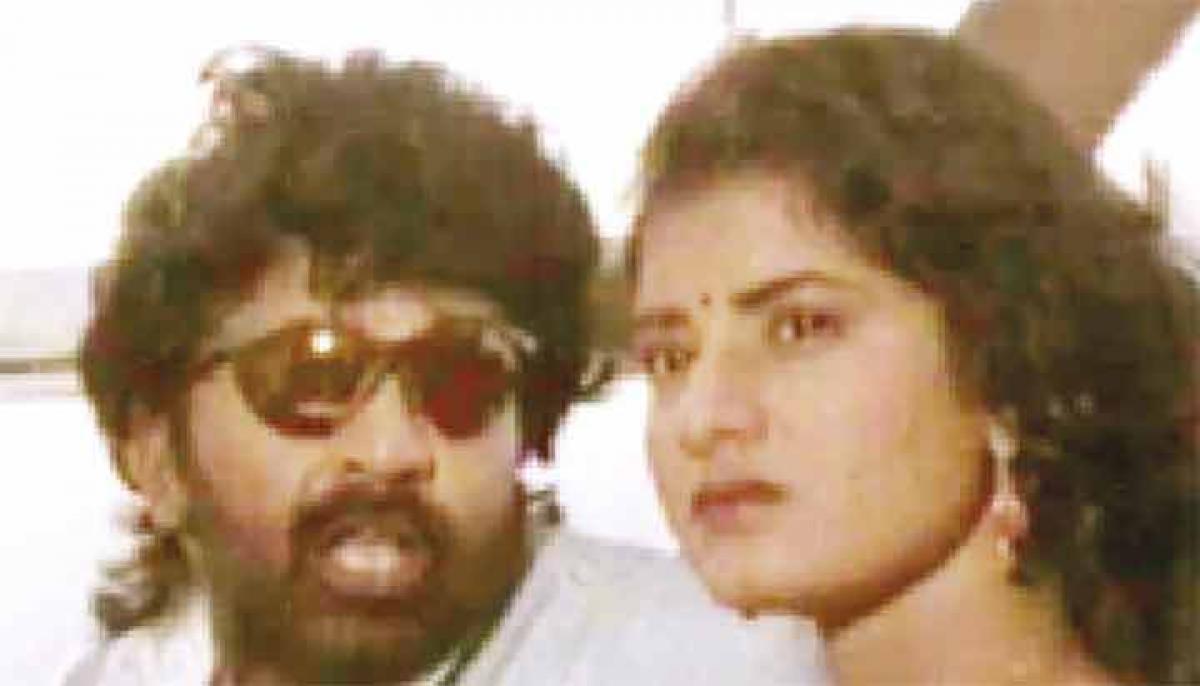Live
- IPL 2024: ‘I am not sure regarding his participation against Chennai’, says LSG Lance Klusener on Mayank Yadav
- Palestinian death toll in Gaza nears 34,000: Ministry
- Assam: JP Nadda pitches for clean governance, explains '8 aadhars' of 'Ashta Lakshmi'
- Yoga Poses That Help Get Relief from Lower Back Pain and Stiffness
- 16-yr-old charged with terrorism offence after stabbing in Sydney church
- Adhyayan Suman embraces debauchery as Nawab Zoravar in 'Heeramandi' promo
- The Ancient Practice of Yesterday, the Therapeutic Retreat of Today: Yin yoga
- CM Kejriwal eating mangoes to raise sugar level to seek bail: ED alleges in Delhi court
- Hindus living in fear under Congress regime, claims K'taka BJP leader
- Apple Releases iOS 17.5 Beta Update with New Features and Enhancements
Just In

When a girl says no, she means yes…This is one of the facile premises on which, duets have been composed for eons in Indian cinema. In terms of popularity, it ranks next only to dream songs, one can affirm. The sequences are so predictable that the film director can take a long vacation break conveniently till the song is canned.

When a girl says no, she means yes…This is one of the facile premises on which, duets have been composed for eons in Indian cinema. In terms of popularity, it ranks next only to dream songs, one can affirm. The sequences are so predictable that the film director can take a long vacation break conveniently till the song is canned.
It always follows a linear, 123 approach. The song opens with a vexed leading lady, for reasons best known to her and at times the audience, walking away defiantly, spurning the frantic wooing of the hyper hero. The high-pitched male playback singer mouths the most atrocious sexist lyrics that one can hear, squirming all the while as it is played out.
Usually, the star is accompanied by lackeys who do everything -- dance, emote and play the props efficiently. By the end of the five-minute number, unable to bear the torture or pandering to the aggressive wooing, the heroine usually blushes and says yes. Some don’t. This song is one such case.
Nothing wrong with the initial attempt of course, as the song starts with a loud scale of SPB’s voice booming….. ‘I love you, you must love me…’ Immediately, one is aware what is in store.A host of flowers, gifts and dress material flood in her direction, as the hero, Dr Rajasekhar makes a grand entry with a flying overcoat and a pall of cigarette smoke.
The scene cuts to a relatively less-crowded Mumbai, of 1997 vintage as the overcrowded Gypsy with the hero in the driver’s seat zooming on Marine Drive roads. May be since it is shot in a non-Telugu territory the lyricist starts the opening para in Hindi: “Dilruba, Dilruba, dil de de Dilruba”… as the composer Hamsalekha, a known name in Kannada cinema, mounts a strong background score, with thumping beats, fit enough for a stunt sequence.
The physical assaults begin almost at once when the hero declares grandly that he would’ defeat’ her if she plays truant and would love her if she bursts into tears. Time for unbridled machismo, as the scene shifts indoors, a darkish silhouette of the furiously smoking hero, with glares on in repetitive mode.
 Further, after a valiant jump to reach out to her the scenario gets into campfire mood, where the doctor-turned-cine star, with a flaring beard, gets edgy and rough with his heroine. Coincidence, or otherwise, the camera spins round and round showing Prema, the object of the hero’s attention trapped in a set resembling a shark’s mouth, its sharp fins and all.
Further, after a valiant jump to reach out to her the scenario gets into campfire mood, where the doctor-turned-cine star, with a flaring beard, gets edgy and rough with his heroine. Coincidence, or otherwise, the camera spins round and round showing Prema, the object of the hero’s attention trapped in a set resembling a shark’s mouth, its sharp fins and all.
If there is a justification to this weird depiction, the trapped condition of the female star is graphic enough as the song plods on, without any major cinematographic appeal to an end when the gang disembarks before a house into which everyone troops in. Upendra,
the maverick film icon of Kannada cinema made his directorial debut with this film, a remake of his massive hit starring the successful star Shiva Rajkumar back home. Courtesy the Tamil background of the hero, it was dubbed into that language too where it failed to make a notable mark even as it just about scraped a reasonable collection in Telugu.
A classic case of uber macho-ism, this is one definite put off for any one in love or attempts to fall into a romantic liaison, anytime in future.
By:K Naresh Kumar

© 2024 Hyderabad Media House Limited/The Hans India. All rights reserved. Powered by hocalwire.com







